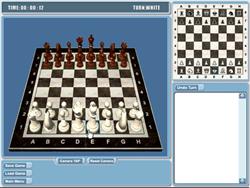Chess
В этой категории:

Chess is one of the many brain games that challenge your strategic thinking and decision-making skills. Chess, often referred to as the "Game of Kings," is a timeless classic that has captivated players for centuries. It's a two-player strategy game played on a checkered board with 64 squares arranged in an 8x8 grid. Each player begins the game with 16 pieces: one king, one queen, two rooks, two knights, two bishops, and eight pawns.
The goal of chess is to checkmate your opponent's king. This means the opponent's king is in a position to be captured ("in check") and there is no way to remove the threat of capture on the next move.
Each type of piece has its own unique movement. The king moves one square in any direction. The queen can move any number of squares along a rank, file, or diagonal. The rook can move any number of squares along a rank or file. The bishop can move any number of squares diagonally. The knight moves to any square not on the same rank, file, or diagonal as its current position - this forms an 'L' shape consisting of two squares horizontally and one square vertically, or two squares vertically and one square horizontally. Pawns are a bit more complex in their movements. They move forward one square but capture diagonally. They also have the option of moving two squares forward on their first move only.
- Deep Strategy: Chess requires deep thinking and forward planning. Each piece has its own movement rules, which adds to the complexity.
- Skill Development: Playing chess can help improve concentration, problem-solving skills, and even creativity.
- Global Popularity: Chess tournaments are held worldwide, and the game has millions of enthusiasts across all age groups.
 0
0
 0
0
комментарии
Комментарии: